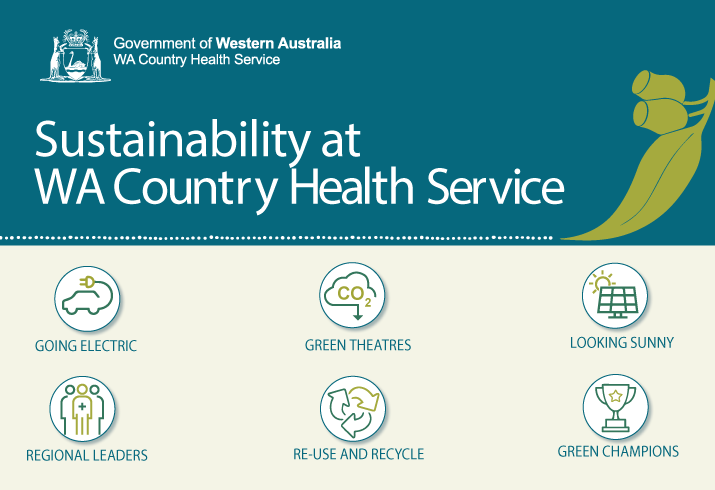WACHS focuses on a greener, more sustainable future

In the year since launching its Environment and Sustainability Framework 2020-2030, WA Country Health Service (WACHS) has been taking action to tackle climate change and reduce the impact of its health services on the environment.
Acting Executive Director Infrastructure and Environment Sonia Ferla said the framework provides a clear action plan to grow sustainable health service that looks to the future.
“Through innovation, ingenuity, and investment, WACHS is driving strategies to reduce our environmental footprint,” Ms Ferla said.
“In the year since the launch of our Environment and Sustainability Framework, we’ve introduced a number of initiatives to improve our environmental health.”
WACHS took delivery of its first electric fleet vehicles in March 2022 with additional electric vehicles scheduled to arrive in the regions throughout the year.
Another significant achievement in 2021 was phasing out the use desflurane anaesthetic gas in WACHS theatres, saving 30 tonnes of CO2 per month from entering the atmosphere (the equivalent of planting 1,200 trees each month).
WACHS is committed to reducing its carbon footprint through the implementation of innovative and energy efficient design solutions at all new and redeveloped facilities.
As part of the Bunbury Regional Hospital redevelopment, WACHS has directly engaged a Sustainability Advisor to drive sustainable decision making at key phases throughout the project.
And a focus on solar electricity saw the installation of the Derby Hospital solar array and a program of energy audits is now underway across the state in preparation for future solar projects.
WACHS is also empowering staff to make change at a local level.
“Small, individual changes can make a huge difference in the long run,” Ms Ferla said.
“We’re giving staff the tools to make green changes their workplaces. We are also continually seeking their ideas to help build a more sustainable future. A network of 100 self-nominated green champions are leading the charge to drive sustainability initiatives across our organisation.”
WACHS is committed to green solutions and will build on the progress over the last year to continue to create healthier environments for staff, patients and communities.

